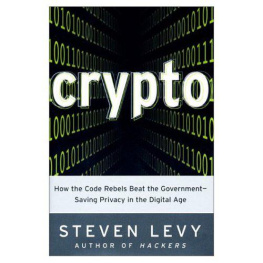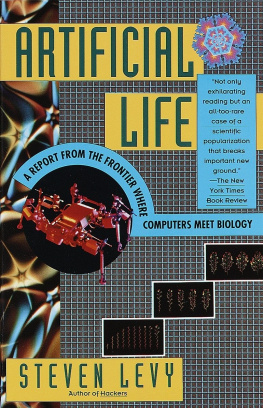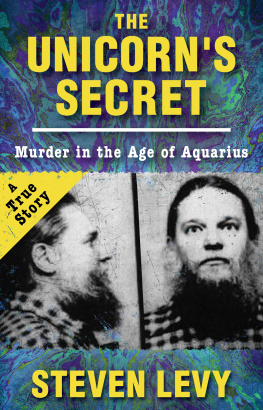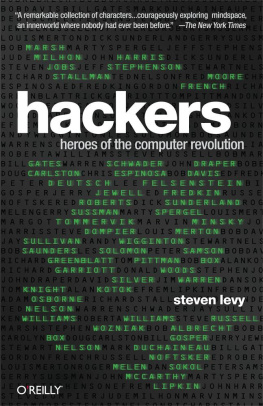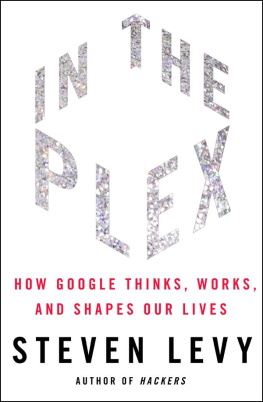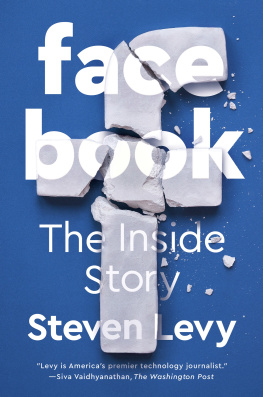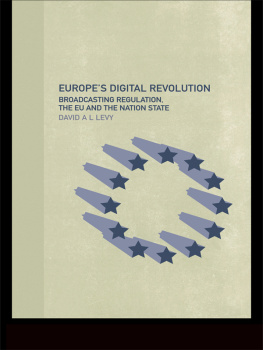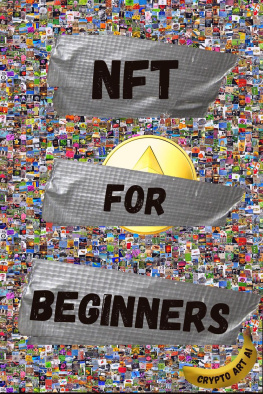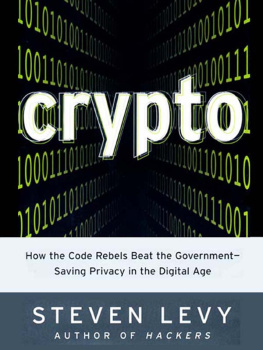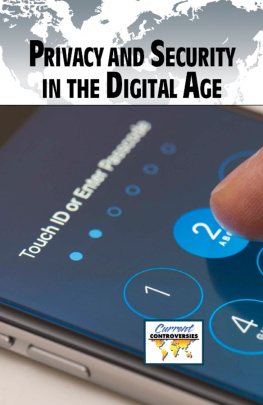Steven Levy - Crypto: How the Code Rebels Beat the Government Saving Privacy in the Digital Age
Here you can read online Steven Levy - Crypto: How the Code Rebels Beat the Government Saving Privacy in the Digital Age full text of the book (entire story) in english for free. Download pdf and epub, get meaning, cover and reviews about this ebook. year: 2001, publisher: Penguin Books, genre: History. Description of the work, (preface) as well as reviews are available. Best literature library LitArk.com created for fans of good reading and offers a wide selection of genres:
Romance novel
Science fiction
Adventure
Detective
Science
History
Home and family
Prose
Art
Politics
Computer
Non-fiction
Religion
Business
Children
Humor
Choose a favorite category and find really read worthwhile books. Enjoy immersion in the world of imagination, feel the emotions of the characters or learn something new for yourself, make an fascinating discovery.
- Book:Crypto: How the Code Rebels Beat the Government Saving Privacy in the Digital Age
- Author:
- Publisher:Penguin Books
- Genre:
- Year:2001
- Rating:3 / 5
- Favourites:Add to favourites
- Your mark:
- 60
- 1
- 2
- 3
- 4
- 5
Crypto: How the Code Rebels Beat the Government Saving Privacy in the Digital Age: summary, description and annotation
We offer to read an annotation, description, summary or preface (depends on what the author of the book "Crypto: How the Code Rebels Beat the Government Saving Privacy in the Digital Age" wrote himself). If you haven't found the necessary information about the book — write in the comments, we will try to find it.
Crypto: How the Code Rebels Beat the Government Saving Privacy in the Digital Age — read online for free the complete book (whole text) full work
Below is the text of the book, divided by pages. System saving the place of the last page read, allows you to conveniently read the book "Crypto: How the Code Rebels Beat the Government Saving Privacy in the Digital Age" online for free, without having to search again every time where you left off. Put a bookmark, and you can go to the page where you finished reading at any time.
Font size:
Interval:
Bookmark:
PENGUIN
Published by the Penguin Group
Penguin Putnam Inc., 375 Hudson Street, New York, New York 10014, U.S.A.
Penguin Books Ltd, 27 Wrights Lane, London W8 5TZ, England
Penguin Books Australia Ltd, Ringwood, Victoria, Australia
Penguin Books Canada Ltd, 10 Alcorn Avenue, Toronto, Ontario, Canada M4V 3B2
Penguin Books (N.Z.) Ltd, 182190 Wairau Road, Auckland 10, New Zealand
Penguin Books Ltd, Registered Offices:
Harmondsworth, Middlesex, England
First published in 2001 by Penguin,
A member of Penguin Putnam Inc.
Copyright Steven Levy, 2001
All rights reserved
ISBN 0-7865-2194-5
Electronic edition: February 2002
Without limiting the rights under copyright reserved above, no part of this publication may be reproduced, stored in or introduced into a retrieval system, or transmitted, in any form or by any means (electronic, mechanical, photocopying, recording or otherwise), without the prior written permission of both the copyright owner and the above publisher of this book.
Making or distributing electronic copies of this book constitutes copyright infringement and could subject the infringer to criminal and civil liability.
also by steven levy
Insanely Great: The Life and Times of Macintosh, the Computer That Changed Everything
Artificial Life: How Computers Are Transforming Our Understanding of Evolution and the Future of Life
The Unicorns Secret: Murder in the Age of Aquarius
Hackers: Heroes of the Computer Revolution
To Teresa and Andrew
The backbone of Crypto is a series of interviews conducted over the past decade with the people who populate, or have had an impact on, the world of cryptography. Obviously, my deepest thanks go to those who have given time and attention to an outsider who wanted to tell a good story. I hope that none of those who cooperated with me will take offense if I single out a few for duty above and beyond: Len Adleman, Jim Bidzos, David Chaum, Whitfield Diffie, Mary Fischer, Eric Hughes, Tim May, Ray Ozzie, Ron Rivest, and Phil Zimmermann.
From September 1994 to June 1995, I was a Fellow at the Freedom Forum Media Studies Center, then located on the Columbia University campus. I enthusiastically acknowledge the kindness of the Freedom Forum, the accommodations and assistance of the Media Studies Center staff, and the terrific company and well-timed wisdom of my fellow Fellows. My researcher there, Kaushik Arunagiri, dug out innumerable documents and also walked me through some math. John Kasdan kindly allowed me to audit his cyberlaw course and Matt Blaze and Joan Feigenbaum welcomed me to their computer science course on cryptography.
Mark Rotenberg, David Banisar, and David Sobel of the Electronic Privacy Information Center gave me access to the astounding documents coughed up by the government under their skillful use of the Freedom of Information Act. John Gilmore and his lawyer Lee Tien also provided me with armloads of declassified materials. Roger Schlafly sent me a huge pack of documents related to RSA and Cylink. Simpson Garfinkel e-mailed me notes of interviews he did for his book, PGP. (Other suppliers will remain nameless, but thanks to them, too.)
During the past eight years, I wrote a number of magazine articles on crypto, and some of these are reflected in this book, particularly those I wrote for Wired , beginning with the cover story on cypherpunks in its second issue and winding up with the first detailed account of nonsecret encryption in 1999. Thanks to all my editors there, especially Kevin Kelly. I also wrote crypto-related stories for The New York Times Sunday Magazine , Macworld , and Newsweek. The latter has been my professional home for the past five years, and I am grateful to everyone there for providing an inveterate freelance writer with a reason to actually hold a job. Thanks to Mark Whitaker, Jon Meacham, and the editor who suffers most with me, George Hackett. I also owe a large debt to the late Maynard Parker.
At Viking, editor Pam Dorman hung tough throughout the marathon. Ann Mah kept the bits flowing. Victoria Wright was both a master transcriber and sharp observer. My agent, Flip Brophy, was once again a flawless advisor and facilitator. And some early readers caught mistakes and offered great suggestions (I wont cite them by name because any errors are solely mine). Those who discover more are encouraged to get in touch with me through my Web site (www.steven levy.com), where I will post corrections and updates.
Words, even in plaintext, cant express what I owe my family, Andrew and Teresa.
Steven Levy, September 2000
t he telegraph, telephone, radio, and especially the computer have put everyone on the globe within earshotat the price of our privacy. It may feel like were performing an intimate act when, sequestered in our rooms and cubicles, we casually use our cell phones and computers to transmit our thoughts, confidences, business plans, and even our money. But clever eavesdroppers, and sometimes even not-so-clever ones, can hear it all. We think were whispering, but were really broadcasting.
A potential antidote exists: cryptography, the use of secret codes and ciphers to scramble information so that its worthless to anyone but the intended recipients. And its through the magic of cryptography that many communications conventions of the real worldsuch as signatures, contracts, receipts, and even poker gameswill find their way to the ubiquitous electronic commons. But as recently as the early 1970s, a deafening silence prevailed over this amazing technology. Governments, particularly that of the United States, managed to stifle open discussion on any aspect of the subject that ventured beyond schoolboy science. Anyone who pursued the fundamental issues about crypto, or, worse, attempted to create new codes or crack old ones, was doomed to a solitary quest that typically led to closed doors, suddenly terminated phone connections, or even subtle warnings to think about something else.
The crypto embargo had a sound rationale: the very essence of cryptography is obscurity, and the exposure that comes from the dimmest ray of sunlight illuminating the working of a government cipher could result in catastrophic damage. An outsider who knew how our encryption worked could make his or her own codes; a foe who learned what codes we could break would shun those codes thereafter.
But what if governments were not the only potential beneficiaries of cryptography? What if the people themselves needed it, to protect their communications and personal data from any and all intruders, including the government itself? Isnt everybody entitled to privacy? Doesnt the advent of computer communications mean that everyone should have access to the sophisticated tools that allow the exchange of words with lawyers and lovers, coworkers and customers, physicians and priests with the same confidence granted face-to-face conversations behind closed doors?
This book tells the story of the people who asked those questions and created a revolution in the field that is destined to change all our lives. It is also the story of those who did their best to make the questions go away. The former were nobodies: computer hackers, academics, and policy wonks. The latter were the most powerful people in the world: spies, and generals, and presidents. Guess who won.
m ary Fischer loathed Whitfield Diffie on sight. He was a type she knew all too well, an MIT brainiac whose arrogance was a smoke screen for a massive personality disorder. The year of the meeting was 1969; the location a hardware store near Central Square in Cambridge, Massachusetts. Over his shoulder he carried a length of wire apparently destined for service as caging material for some sort of pet. This was a typical purchase for Diffie, whose exotic animal collection included a nine-foot python, a skunk, and a rare genetta genetta, a furry mongooselike creature whose gland secretions commonly evoked severe allergic reactions in people. It lived on a diet of live rats and at unpredictable moments would nip startled human admirers with needlelike fangs. An owner of such a creature would normally be of interest to Mary Fischer, an animal lover who at that very moment had a squirrel in her pocket. At home she also had a skunk as well as two dogs, a fox, a white-wing trumpeter bird, and two South American kinkajous. Diffie saw that she was buying some cage clips and abruptly focused his attention on her.
Next pageFont size:
Interval:
Bookmark:
Similar books «Crypto: How the Code Rebels Beat the Government Saving Privacy in the Digital Age»
Look at similar books to Crypto: How the Code Rebels Beat the Government Saving Privacy in the Digital Age. We have selected literature similar in name and meaning in the hope of providing readers with more options to find new, interesting, not yet read works.
Discussion, reviews of the book Crypto: How the Code Rebels Beat the Government Saving Privacy in the Digital Age and just readers' own opinions. Leave your comments, write what you think about the work, its meaning or the main characters. Specify what exactly you liked and what you didn't like, and why you think so.

